Hi!! It’s been awhile, thanks for sticking with me!
Since I last updated here, adventures have included meet and traveling with cool activists from all over the United States, spending 12 consecutive hours waiting at an international border crossing, and paddling whitewater in Pucón.
First things first!
I spent 10 days at the end of November on a delegation with Alliance for Global Justice, check out the organization here:
The delegates ranged in age from 21 to mid-70s and all are engaged activists involved in many different issues and organizations including Black Alliance for Peace, Resist US Led War, the Green Party, and several different unions and mutual aid projects. It was so awesome to be surrounded by a multigenerational community invested in learning from Bolivia’s unique political history. Officially the Plurinational State of Bolivia– as of the 2009 constitution created under the Evo Morales presidency– the country recognizes that there are 36 sovereign Indigenous nations in the country. Among other political landmarks, the constitution recognizes Quechua as an official language alongside Spanish and increased Indigenous congressional representation to 50%. As a group, we learned about the history and politics that went into the creation of the new constitution and how the political and social worlds have since shifted. We traveled from Cochabamba to a small town in the municipality of Malla and the department of La Paz (think equivalents of counties and states). Malla is a very small municipality, and we visited an exciting new project they’ve started above the town of Rodeo. At an elevation above 16,000 feet there is a glacial lake with two floats rocking in sleety wind. I hopped in a bright blue and splintering rowboat with another participant and two cousins who have lived in Rodeo their whole lives and are involved in this new community venture of trout farming. We bobbed out to the floats on a set line and pulled netting aside to reveal dozens of rainbow trout darting around the holding net. We scooped a bucketful of unlucky fish, picking them up and returning them to the bucket each time they flew out of it– over and over until we pulled our way back to shore and gave some folks the fish to prepare for lunch.
This upstart trout farm represents a form of Indigenous economic sovereignty for the municipality. Mostly Aymara, the community’s other forms of income come a bit from agriculture, but mostly from a tin mine that we also got to see. The mine lies below the lake but still upstream of the town of Rodeo– the first of many stream-side towns in the valley. The mining effluent runs out across a field (pictured below), spiraling through pools that draw down most of the contaminates. But without any assured treatment or permanent holding of wastewater, the mine effectively renders the entire stream unable to use as drinking water for everyone downstream. The trout farm is an exciting new opportunity that does not degrade the environment with mining pollutants and enhances Indigenous food sovereignty. After the lake and mine tours, we were treated to a delicious lunch of fried trout (the very same I plopped back in the bucket), small local potatoes, and rice. Over lunch, we chatted with our hosts about life in different parts of the States, and the woman-led cooperative that is heading up the trout project. If you want to learn more and support their goal to build more trout raising pens, check out the fundraiser AFGJ delegates organized in solidarity with the leadership in Malla:
The rest of the delegation was rich with discussion, lectures, and learning. I’m still sifting through pages and pages of notes in my inconveniently small pocket journal, and mentally sifting through memories and lessons learned. Hopefully more reflections from those 10 days soon!

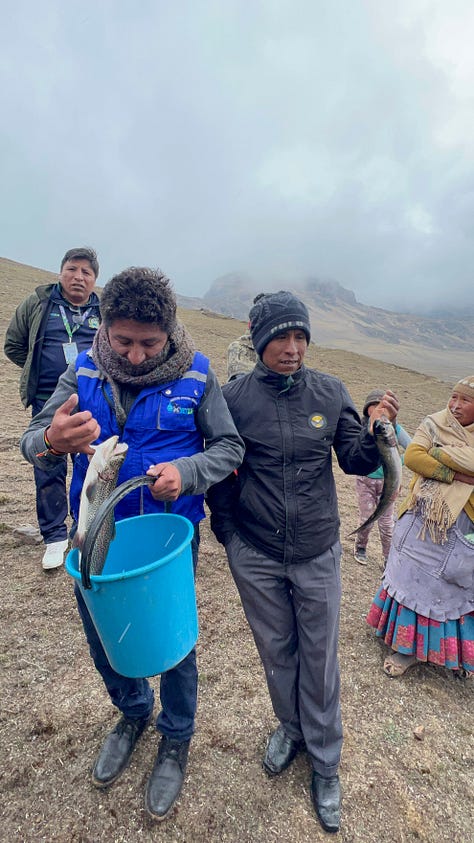
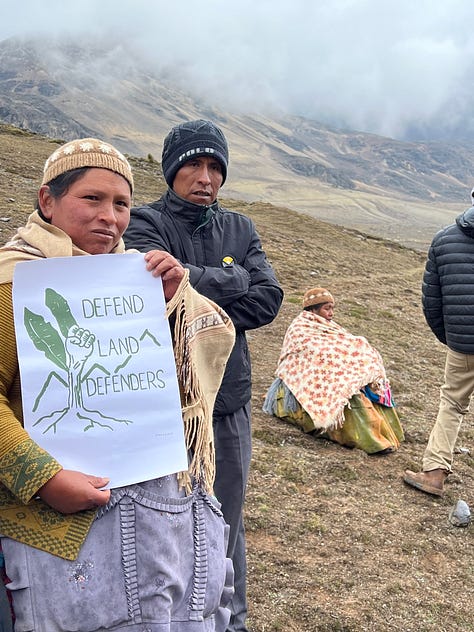
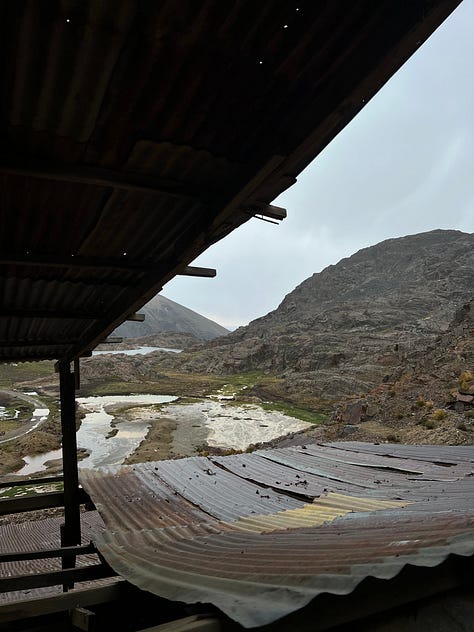
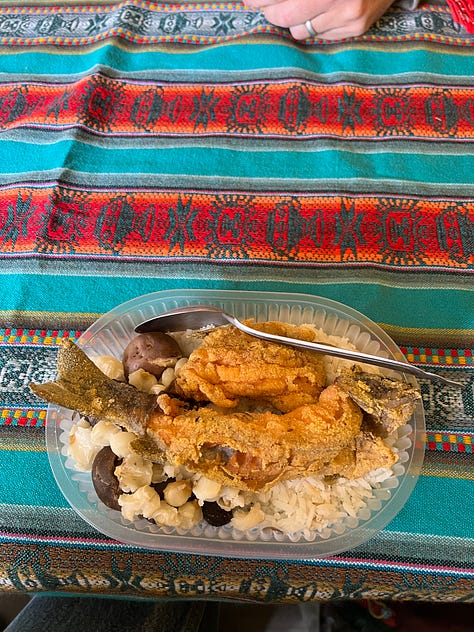
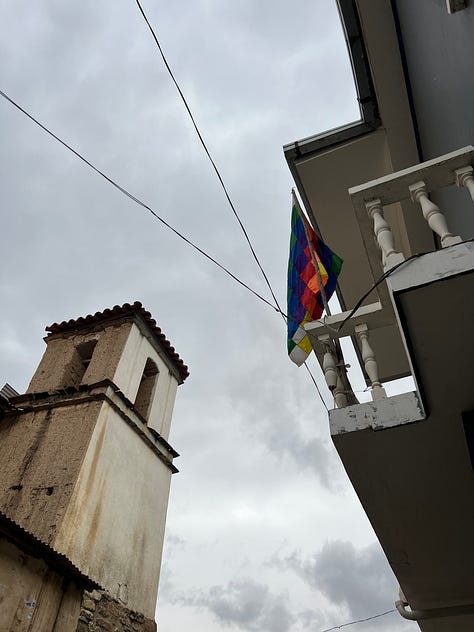
Two days after the delegation wrapped up and the other participants scattered back to their respective pockets of the States, I boarded a bus from Cochabamba to Oruro. Not enough people showed for the 10:30 departure that I was planning on, so we left at 1 in the afternoon instead. 5 hours later, we got to Oruro. The bus terminal is built with a dome ceiling, much like a massive cathedral, except instead of whispers and muffled footsteps, echos of bus hawkers and food vendors resound in every direction, making a few hour layover not the most restful. My overnight bus left at 10, and thinking I’d be woken up briefly for the Chilean border crossing and then be in my hostel in Iquique for breakfast, I fell asleep relatively easily. At 2:30am we ground to a stop, and after I blearily asked around I learned that yes, we had made it to the border and no, we won’t be going through until the office opens at 8:30 the next morning. Lesson learned very quickly not to take overnight buses over international borders.
Around 5 am I woke up and after struggling to open the bus door, a kind woman came and helped and we went to look for a bathroom together. No luck, but the alley I ducked into had an awesome view of big mountains with snow frosting them. At 8am, as the fourth bus in line, we started creeping very slowly closer to the immigration office, and at 3pm we were in the clear. I made it to my hostel that night by 10, ordered takeout, took an unfortunately cold shower, and slept very well. The following day I had a much simpler travel day to Santiago via plane where I met one of my dear friends from home and together we traveled farther south to Pucón for a week of kayaking. It felt great to get back in a boat after a few months, and I’m feeling more ready and stoked for the work I’m headed to in January helping to teach kayaking!
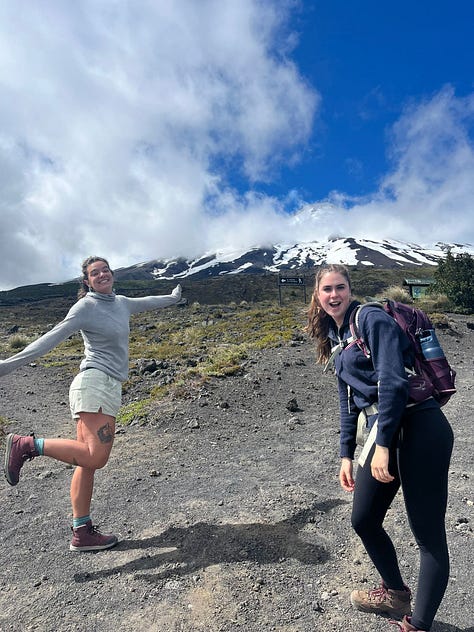
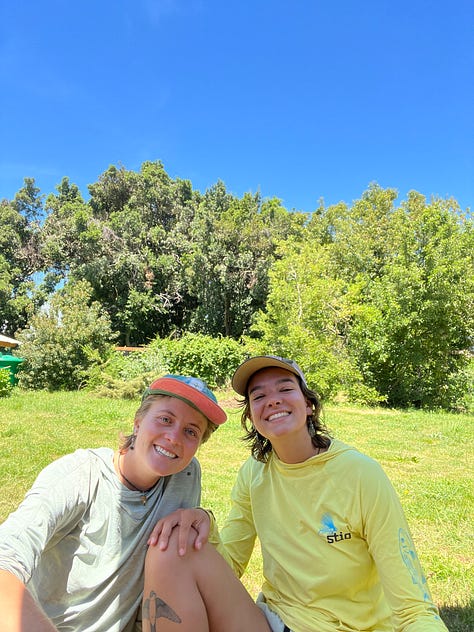

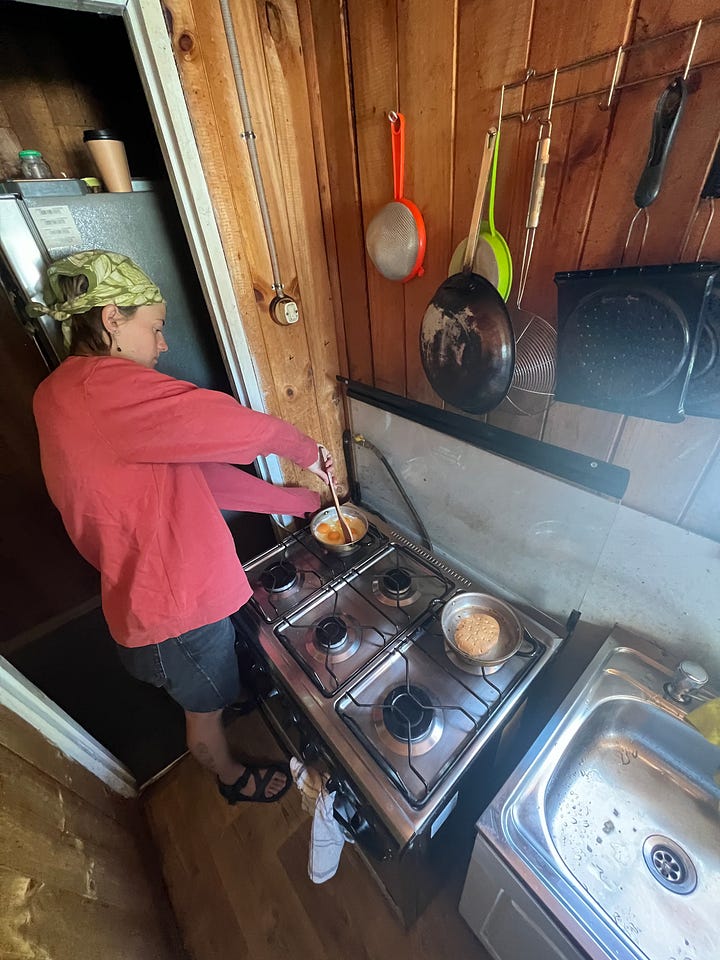
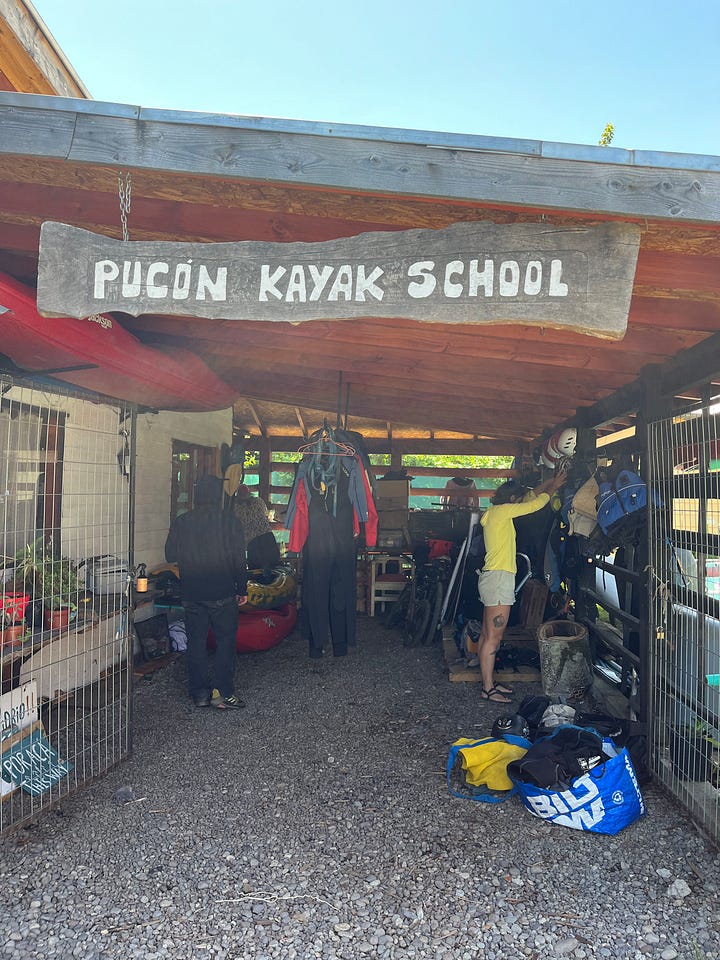
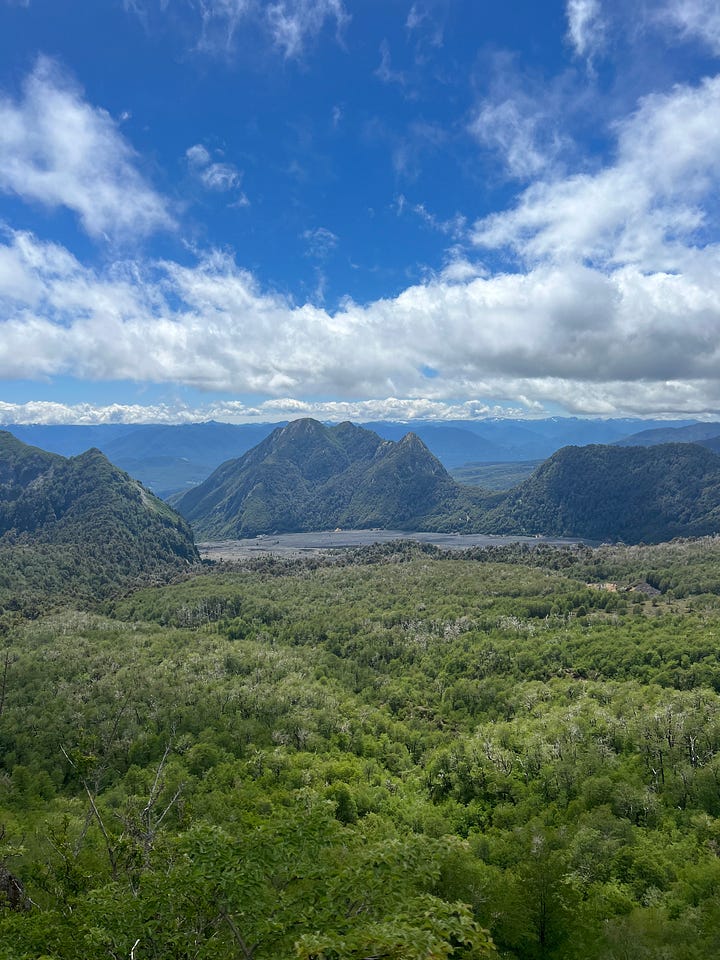
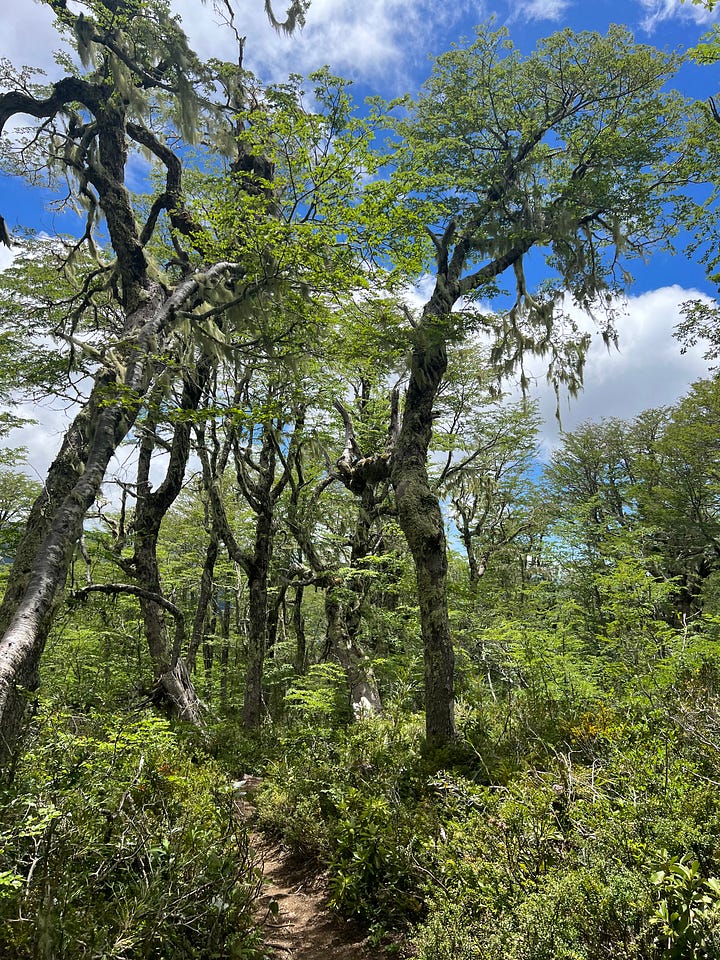
Now I’m with my sibling Tio! And we’re (kind of) surfing in a Chilean coastal town! Learning to surf is silly and slightly scary (not helpful to be deeply afraid of the ocean) and it is so fun to be with my brother learning a new thing. We are noodling around here and taking breaking waves to the face until we meet up with our parents for the holidays. In January I’ll start about 6 weeks of work with Ríos to Rivers.
I hope you are all well and finding small birds to smile at. <33




So happy to see all of what you are doing!!!!! ❤️❤️Keep it up Carly! Sooooo fun
Carly this makes me smile so hard! Thank you for sharing the highs and the lows of not only your fabulous adventure, but the realities of everyday living and travel. I know all 4 of you will enjoy your very special Christmas together! LOVE LOVE TO YOU!